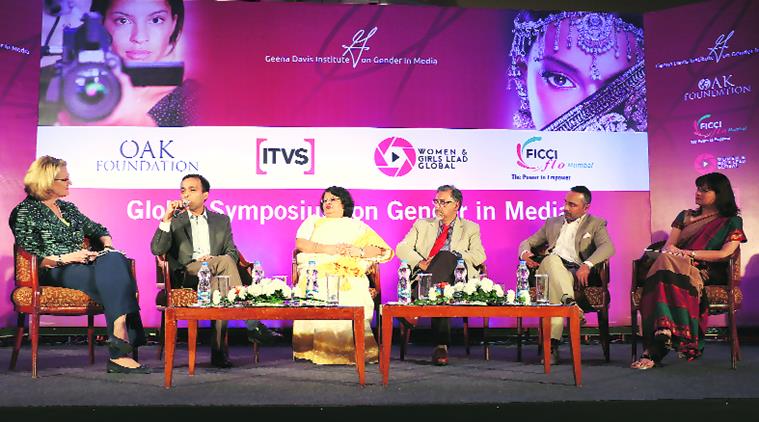The many tools that build an opinion
A global panel on gender in media discussed the choice between entertaining audiences and addressing social issues.
 Panelists discussed the effects of films and how sensitive topics could be handled
Panelists discussed the effects of films and how sensitive topics could be handled
Madeline D Nonno, the CEO of the Geena Davis Institute on Gender in Media, said that media tends to reinforce harmful gender stereotypes. She presented a research that showed that a majority of Indians view the media as a powerful tool, which shapes attitudes. She was talking at a panel discussion of the “Global Symposium on Gender in Media” organised by FLO (FICCI Ladies Organisation) and Geena Davis Institute on Gender in Media, in collaboration with iTVS and Women and Girls Lead.
Responding to Nonno’s query regarding how people in media could influence social norms, filmmaker Mahesh Bhatt said, “We are in the business of entertainment. If books and films could change the world, we’d be living in a perfect society. Media can’t really alter the beast in man. We filmmakers are here to entertain, not necessarily bring about social change”. Actor Nadita Das, who directed the feature film Firaaq, disagreed. “Films do bring about change. Otherwise, why are the right-wingers and conservatives so threatened by certain films?”
Another issue that was discussed was people’s preference for “family” films, as the study showed, and how sensitive issues needed to be portrayed. Actor-director Rahul Bose said that having to show only “clean” scenes was “baloney”. “We can’t take away the sex and violence, even though that makes most viewers uncomfortable. That is reality. Instead, we have to change what the audience takes away from it. It has to start a dialogue in the right direction”.
Director Aruna Raje, whose work includes Sahque, Gehrayee, and Situm, said, “If you look at movies from the ’70s and ’80s, the way men would woo women in films — stalking, or teasing, for instance— influenced how they acted in real life.”
Raje talked about the film Rihaee that starred Hema Malini, who got pregnant through an affair and was pressured to have an abortion by her village. Although the other women in the village were initially against the character’s actions, they started speaking out against the men’s double standards in the film. Raje was apprehensive about audiences’ reaction. But as she sat in the cinema hall, she was surprised to see that the men started clapping when the scene appeared. “I realised that fighting for the underdog was an important aspect of entertainment too. It’s another way we can gain acceptance for more controversial social issues,” said Raje.





- 01
- 02
- 03
- 04
- 05






















